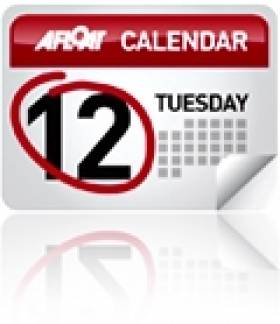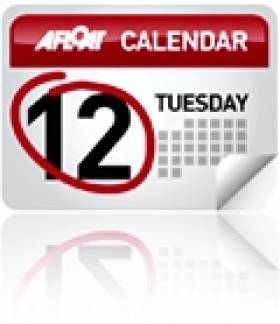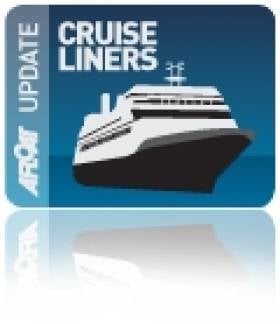Displaying items by tag: The Sunday Times
Whale Gets Third 'Best Company to Work For' Accolade
#BUSINESS - Water systems firm Whale has featured in The Sunday Times' Best Small Companies to Work For list for the third year running.
The 2012 edition of the list sees the Bangor-based company - and the only Northern Irish representative - rise 19 places to number 77.
Whale was particularly commended for looking after the wellbeing of its staff, its overall ranking of eighth place reflecting the faith in managing director Patrick Hurst and the employees trust in the “sound capabilities” of the leadership.
Patrick Hurst commented: “To be listed again in 2012 is just fantastic for all the team at Whale. Our employees and their attitude and loyalty is what defines the business and is core to its continued commercial success.
"The Whale team in the are a credit to the company and themselves. They have all worked hard together to continually maintain the quality and introduce innovative, market leading products."
Whale (Munster Simms Engineering Limited) is a key player in the leisure marine, recreational vehicle, shower drainage and industrial markets. The company specialises in the design and manufacture of water, waste and heating products including manual and electric freshwater, bilge and waste pumps, Quick Connect plumbing systems, faucets, showers, space and water heaters, and accessories.
Dublin’s turn to host Holiday World Show 2012
#DUBLIN HOLIDAY WORLD SHOW - Following Belfast's hosting of the annual travel event, the Dublin Holiday World Show starts this weekend (Friday 27th to Sunday 29th January) at the RDS Simmonscourt Pavillon in Ballsbridge.
Like its northern counterpart the Dublin Holiday World Show in association with The Sunday Times incorporates Ireland's biggest Caravan & Motorhome Show and the Over 55' Holiday Show.
With 60 countries, some 1,000 travel and tourism professionals will be ready to give advice and detailed, expert information including those representing ferry and cruise ship operators (see LIST).
Also at the show will be the free Expert Travel Clinics hosted by the renowned travel journalist Eoghan Corry who will be accompanied by leading industry experts giving talks, and answering visitors questions on topics such as cruises, travel in the Far East, African holidays, sports trips and holidays, adventure travel, Caribbean holidays and honeymoons, the US Deep South experience, as well as Home Holidays.
President of the Irish Travel Agents Association, Pat Dawson said: "The Irish holiday market is on a very sound footing. We in the ITAA see recession as an opportunity".
"Prices right now are cheaper than ever before and the exhibitors at Holiday World Show 2012 reflect what is happening in the industry, and you will get extraordinarily good value at the show."
For a list of exhibitors at the show they can be viewed HERE. Admission for children is free, when accompanied by an adult, for further details of the Dublin Holiday World Show click HERE.
Belfast to Showcase Holiday World
#HOLIDAY WORLD SHOW -The Belfast Telegraph Holiday World Show will be officially opened by actress and comedian Crissy Rock of I'm a Celebrity... Get Me Out of Here' fame, where she is to 'check in' at the city's King's Hall, this Friday.
The three day show (20th -22nd January) which ends on the Sunday, is Northern Ireland's biggest annual public showcase of travel, tourism and hospitality will offer an array of holiday destinations. Around 30,000 visitors are expected to the show during the weekend.
It will also be the show's 20th anniversary, commenting on the milestone, organiser Edmund Hourican said: "In 2012 we'll be celebrating 20 years of Holiday World Belfast. While much has changed during that time, the event still provides would-be travellers with a hassle-free opportunity to find out about and compare destinations, airlines, travel agencies - and their prices.
"Today's savvy travellers understand that 'best value' doesn't necessarily mean 'cheapest'. Rather, they are looking to find the products and services that best match their requirements. While visitors to Holiday World Belfast are typically prepared to invest in holidays – often heavily - they do want reassurance that they are making the right choices and getting the best deal. The fact that Holiday World is packed with special offers and discounts is a welcome extra bonus!"
Following the popularity of last year's launch by Oasis Travel of the Cruise Pavilion, this part of the show is also to return in 2012, bringing the biggest names in cruising and will include the successful series of cruise lectures suited to both the experienced 'cruiser' and those completely new to this style of holiday.
In addition this year will feature an all new event-within-an-event Over 55s Holiday Show, adding an important new focus to Holiday World Belfast. To read more details of the show, exhibitors including ferry and cruise operators, and for opening times and admission prices click HERE.
Following the Belfast show, it will be the turn of Dublin to host the Holiday World Show in association with The Sunday Times which opens on the following weekend (Friday 27th-Sunday 29th January) in the RDS Simmonscourt Pavillon, Ballsbridge.
Like the Belfast show there will be an Over 55's Holiday Show plus the Caravan & Motorhome Show. For further details of the show they can be viewed HERE.
- Holiday World Show
- Ferry operators
- Cruise operators
- The Sunday Times
- Belfast Telegraph Holoiday World Show
- Kings Hall Belfast
- Oasis Travel
- Cruise Pavillon
- Cruiseliners
- RDS Dublin
- RDS Simmonscourt
- Ferry news
- Crissy Rock
- I'm a CelebrityGet me out of Here
- Irish travel firms
- Irish tourism
- Northern Ireland tourism
Cruise-Talk at the Holiday World Show
The following ferry and cruise operators are exhibiting at the show: Azamara Cruises, Celebrity Cruises, Celtic Link Ferries, Cruise & Maritime Voyages, Cruise Holidays, Travel.ie, Hurtigruten, John Galligan Travel, MSC Cruises, Princess Cruise Lines, Pullmantur Cruises, Regent Seven Seas Cruises, Royal Caribbean Cruise Line, Saga, Silversea Cruises, Thomas Cook and Voyages To Antiquity.
Also exhibiting is Emerald Star for those interested in taking a cabin-cruiser holiday on the Shannon.
For opening times of Holiday World Show (incorporating the Caravan & Motor Home Show) see below
Friday 28 January 1.00 pm - 8.00 pm
Saturday 29 January 11.00 am - 5.30 pm
Sunday 30 January 11.00 am - 5.30 pm
For a full listing of exhibitors, ticket prices and further information about the show logon to www.holidayworldshow.com
































































